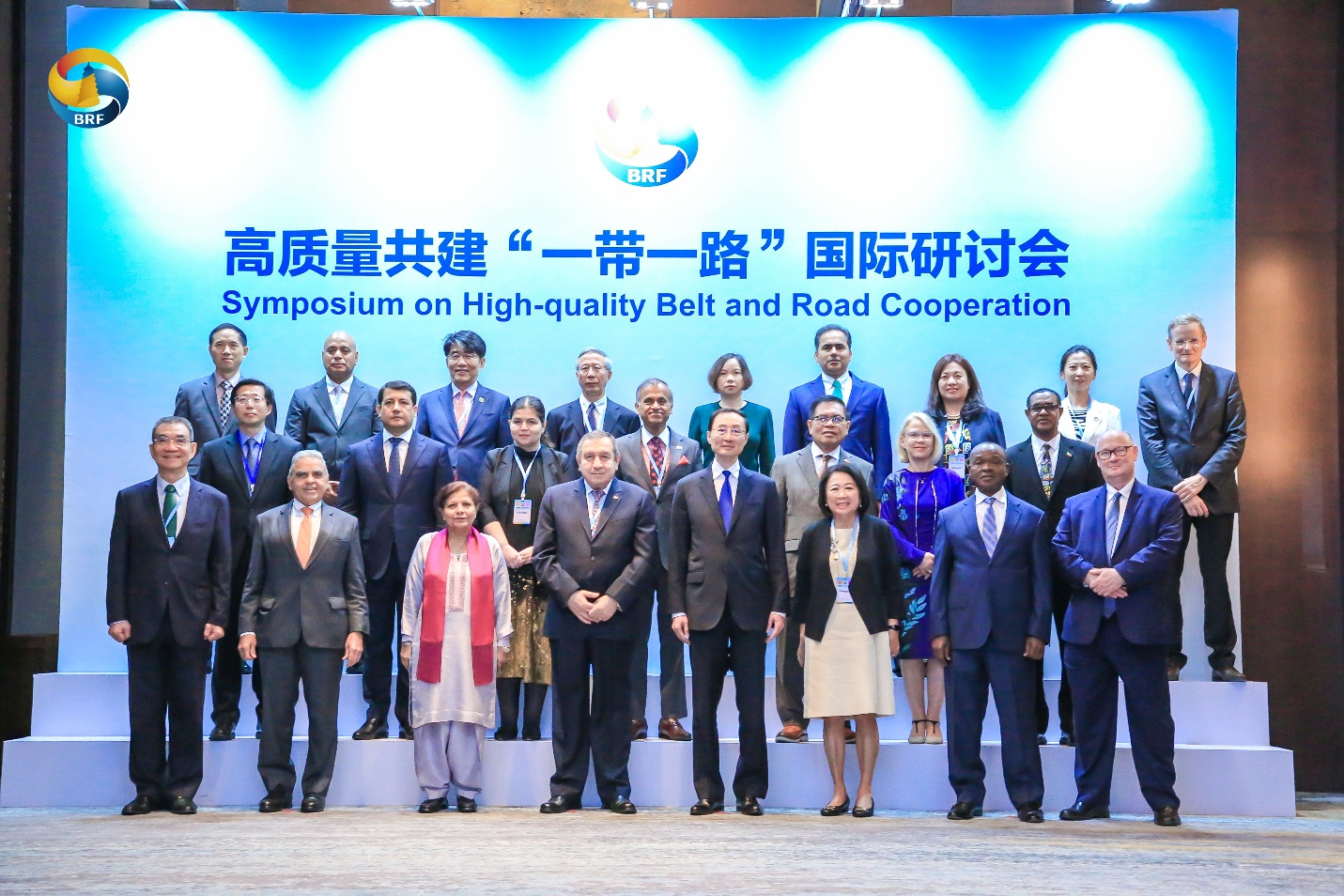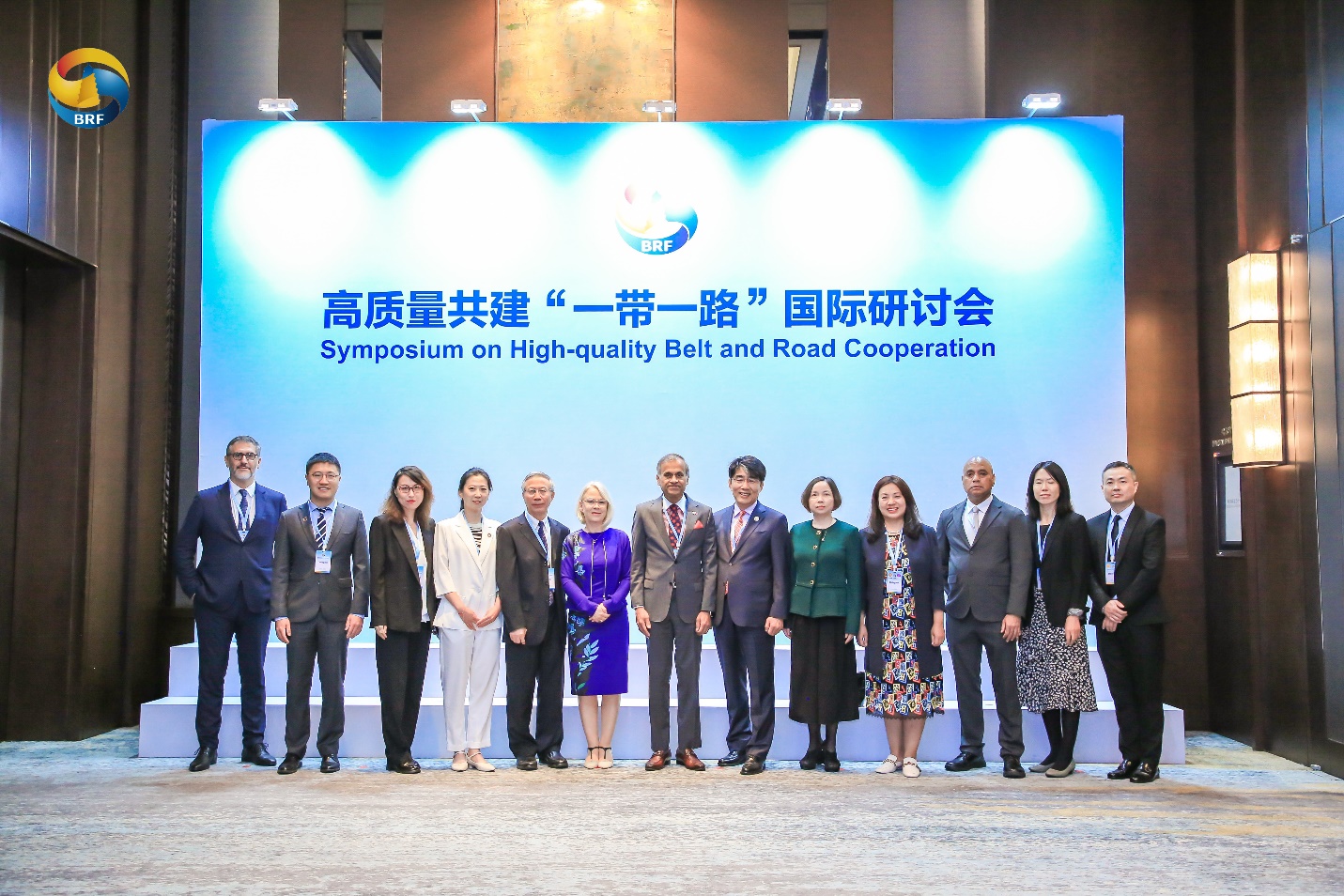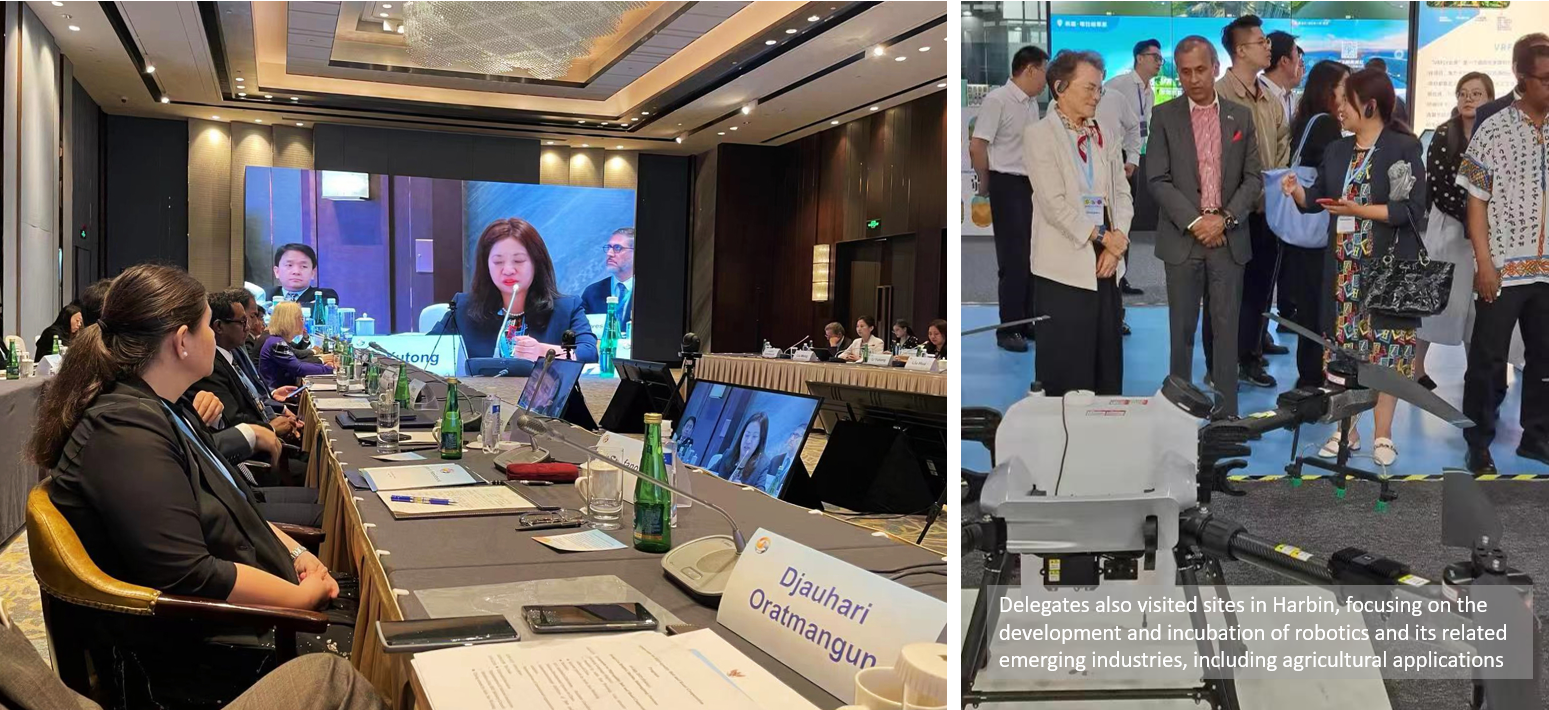CSAM Participates in the Symposium on High-quality Belt and Road Cooperation
On 14 and 15 July 2023 the Centre for Sustainable Agricultural Mechanization (CSAM) of the United Nations Economic and Social Commission for Asia and the Pacific (ESCAP) participated in the Symposium on High-quality Belt and Road Cooperation in Harbin, Heilongjiang Province, China, together with representatives of the United Nations Country Team in China, led by the Resident Coordinator Mr. Siddharth Chatterjee.

The Symposium was presided by H.E. Mr. Sun Weidong, Vice Minister of Foreign Affairs of the People’s Republic of China. Organized by the Ministry of Foreign Affairs of the People’s Republic of China, the Symposium served as a platform for influential stakeholders, policymakers, experts, and practitioners to discuss strategies for achieving sustainable, inclusive, and mutually beneficial cooperation and provided an opportunity to exchange ideas and foster collaboration in key areas such as infrastructure development, green energy, digital connectivity, and trade facilitation.


Dr. Yutong Li, Head of ESCAP-CSAM, highlighted the strategic partnership between ESCAP, and the Government of China since a Letter of Intent for promoting connectivity on the Belt and Road Initiative was signed between the two parties in 2016. Dr. Li underscored the importance of the correlations between food security and ecosystem conservation in the agricultural sector through sustainable and effective mechanization approaches such as black soil conservation practices implemented particularly in North-East China. In her remarks, she cited an example of CSAM’s efforts on a regional initiative on integrated straw management to test and adapt solutions to address crop residue burning which causes air pollution and greenhouse gas emissions in many countries in the Asia-Pacific region, urging the promotion of innovative and environmentally friendly practices such as circular use of crop residues by adoption of sustainable mechanization-based interventions. Dr. Li also emphasized that collective efforts must be strengthened at different levels to explore and leverage collaboration in the areas of common interests in order to contribute to food security and the attainment of the related Sustainable Development Goals.
